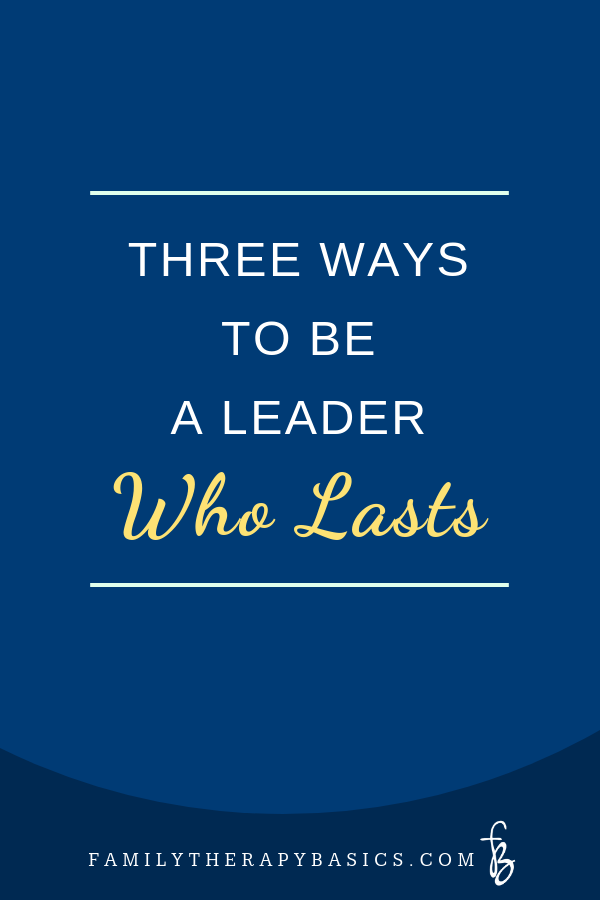* This article was originally published by PsychCentral Professional. The platform recently re-branded, and removed articles from its site. The article will now be housed here, on the Family Therapy Basics blog.
As a clinical supervisor and consultant to therapists, I meet many clinicians who find themselves burned out, bored, or numb after years of showing up for their clients, and neglecting, to some degree, to show up for themselves. The reality of our work is that in order to sustain and enjoy it, we must intentionally deal with the nuances of what it means to function as a therapist inside and outside the therapy room.
As therapists, we have the opportunity to be vocal about the ways we live out the intersection of life and work. Our voices generate more expansive and encouraging conversations that can lead to a sense of flow in navigating our personal and therapist selves.
I’d like to share my self-of-the-therapist story with you, in the hopes that it will invite you to find your best path for bringing more of yourself to your work.
My Self-of-the-Therapist Story
During the first year of my master’s program, I, along with my classmates, went through a process of self and family-of-origin reflection based on Bowen Theory (Bowen, 1985). This was a year-long process of reflecting on my family-of-origin dynamics and rules, which culminated in a project (similar to Murray Bowen’s self-differentiation process) of facing and interviewing my significant family members, as well as creating a four generation genogram.
While I do not know how I would have worked and lived as a therapist without the benefits of this process, I have instinctively credited my self-of-the-therapist journey with:
Opening more vulnerable communication in my family of origin. This new style of communicating was not only initiated by me. Once I opened the doors by facing family members as part of my family-of-origin project, they willingly and regularly walked into this new relational space of openness.
Not carrying clients’ burdens. My personality tendencies are not ones of anxiety or worry, so I may have already had some skills (nature or nurture) in this area. But, I believe--without having conducted formal research--that the process of differentiation initiated through my graduate program allowed me to use my voice and understand my boundaries in ways I would not have been able to otherwise.
Deepening self-awareness. The process developed self-awareness that has helped me prevent burnout by noticing potential problems coming "from afar." In essence, I see the signs before experiencing the effects. As a result, I have been able to employ strategies necessary for staying congruent with myself, remaining connected to significant others, and taking care of myself in general. Of course, these strategies are in constant demand as we live our lives. The point is not that these skills are solidified "in" me, but rather that they have become a consistent process for living well.
A view of self-care as soul care: Soul care is an an understanding of self care as a moment-to-moment practice that involves ongoing self awareness and reflection, rather than a collection of strategies relied upon when I am fatigued.
I do not share these personal tendencies with you to brag or set myself apart. I share them because I believe that they are available to anyone who participates in family-of-origin and self exploration. And, there's research that supports my belief.
The Research
In July 2017, the Journal of Marital and Family Therapy (JMFT) published an article summarizing a thematic analysis on the impact of person of the therapist training (POTT) (Aponte, 1992; 1994; Kissil & Niño, 2017). The findings from the study confirm what I assumed from my personal experience. The researchers found that POTT leads to:
A “better understanding of self,” specifically through increasing awareness of how childhood experiences and family of origin dynamics create personal tendencies and impact current functioning (Kissi & Nińo, 2017, p. 530).
Significant changes to "self," including increased acceptance and kindness toward self, a "higher tolerance for emotional pain and increased willingness to risk feeling pain,” as well as heightened sensitivity to one's needs (Kissil & Nińo, 2017, p. 530).
A sense of connectedness in relationships through "an increased ability to be authentic, open, and vulnerable in . . . relationships.” Study participants observed significant changes in important relationships due to differentiation as a catalyst for an “improved ability to create boundaries” (Kissil & Nińo, 2017, p. 531-532).
A self-caring attitude experienced as "compassion for themselves, and accepting their flawed humanity as an ongoing state. This quality seems to be integrated into their daily living and not a separate task or function they intentionally do as part of their self-care" (Kissil & Niño, 2017, p. 533).
A Note on Self Care
As I developed as a therapist while attempting to pinpoint the impact of self-of-the-therapist training, it became clear that there is no division between "therapist" and "self." Certainly, for most of us, our work environment is separate from our living space [although, this has certainly changed since COVID], and, as a result, there are visible, physical markers for when we change contexts. However, the self we carry to our work and the self we carry to our lives is the same self. (To believe otherwise is to put ourselves at risk.)
Kissil and Niño (2017) summarize the research on self care, as well as therapist's tenuous relationship with self-care:
Taken together, we know that: (a) therapists are at risk for developing distress, burnout and impaired professional competency, (b) self-care is an ethical imperative and not a luxury, (c) research supports many effective self-care strategies, (d) therapists believe in the importance of self-care and enthusiastically recommend it to their clients, and (e) therapists, for various reasons, have difficulty availing themselves for their own self-care [emphasis added]. (p. 528)
Thankfully, personal self-of-the-therapist work for clinicians is an answer to this and many other "hazards of the job." The research supports that a specific process, under a mentor, for self-of-the-therapist exploration not only initiates self-growth, but also helps therapists develop relational skills that transfer to their personal and professional interactions. Kissil and Niño’s (2017) research provides a path for every therapist to develop differentiation of self. Differentiation fosters familiarity with our specific vulnerabilities, as well as our humanity, and as a result, it leads to improved therapeutic boundaries, self-acceptance and self-compassion, and increased empathy for clients.
Differentiation, vulnerability, and empathy also manifest in therapists' personal lives (Bowen, 1985; Kissil & Niño, 2017). Because we cannot compartmentalize our "personal self" and our "therapist self," we also cannot compartmentalize the results (and benefits) of participating in a self-of-the-therapist process. Self-of-the-therapist work will change you and your relationships.
The Refreshed Life
The refreshed therapist life is one grounded in self-knowledge. Self-knowledge flowing from an understanding of one's relational history and family-of-origin context as well as their influence on the ways we act, think, and relate. This self-knowledge allows for freedom in how we live out our days, including the ways we define, design, and carry out our work.
In summary, the authors explain: "Participants described developing a more positive attitude about life and the world in general; feeling optimistic, happy, freer, lighter as well as having an increased ability to live in the present and be comfortable with uncertainty" (Kissil & Niño, 2017, p. 531).
What a fantastic description of the refreshed life!
For information on initiating your self-of-the-therapist process, see:
Bowen, M. (1972). Family therapy in clinical practice. Lanham, MD: Jason Aronson.
Marlin, E. (1989). Genograms: The new tool for exploring the personality, career, and love patterns you inherit. McGraw-Hill Companies.
Titelman, P. (Ed.). (1987). The therapist's own family: Toward the differentiation of self. Lanham, MD: Jason Aronson.
References
Aponte, H. J. (1994). How personal can training get? Journal of Marital and Family Therapy, 20(1), 3–15.
Aponte, H. J. (1992). Training the person of the therapist in structural family therapy. Journal of Marital and Family Therapy, 18, 269–281.
Bowen, M. (1985). Family therapy in clinical practice. Lanham, MD: Rowman & Littlefield Publishers, Inc.
Kissil, K. and Niño, A. (2017). Does the person-of-the-therapist training (POTT) promote self-care? personal gains of mft trainees following POTT: A retrospective thematic analysis. Journal of Marital and Family Therapy, 43, 526–536. doi: 10.1111/jmft.12213
Let’s Chat
How do you see self-of-the-therapist work as influential, or important, to your work?













